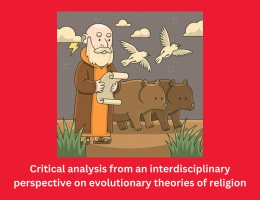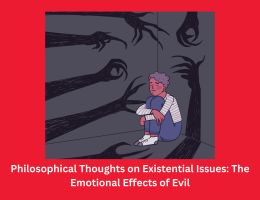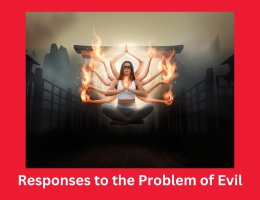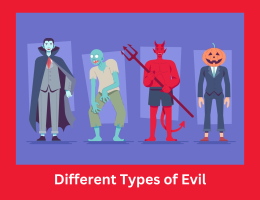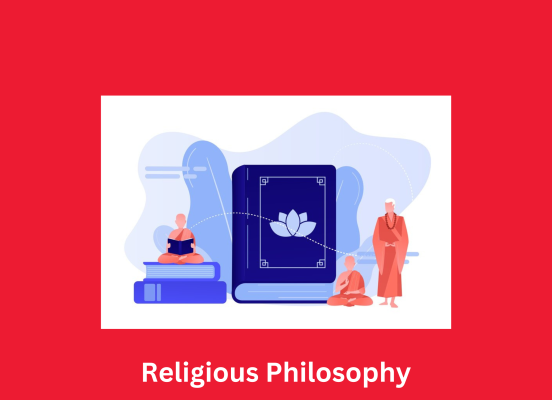
Religious Philosophy
- By admin --
- Wednesday, 01 May, 2024
The philosophical have a look at of faith's essence and significance is called philosophy of faith. It incorporates examinations of spiritual vocabulary, concepts, and adherents' arguments and activities. A massive part of the studies in philosophy of religion has centered simplest on the special theistic faiths. A wider, more worldwide attitude is often utilized in extra recent look at, accounting for each theistic and non-theistic spiritual traditions. The spectrum of humans working in the topic of philosophy of faith is huge and sundry, encompassing intellectuals from both Eastern and Western traditions, philosophers from the analytical and continental traditions, in addition to atheists, skeptics, and believers in different religions. The examine of philosophy of religion includes factors from all the main branches of philosophy in addition to other disciplines which includes records, sociology, psychology, theology, and the herbal sciences.
1. Positive Logical Theory
The discipline of philosophy, specially inside the analytic tradition, emphasizes the importance of phrase clarity and accuracy. Religious language is regularly misguided, veiled in thriller, and uncertain. Philosophers countered this language imprecision inside the twentieth century with the aid of rejecting all non-empirical statements as worthless by using applying the verifiability criterion. Only the tautologies of common sense and mathematics, in addition to claims together with real observations or deductions, have been taken into consideration full-size through those logical positivists.
2. The Real and Non-Real Worlds
Regarding what non secular language and beliefs are approximately, strands in philosophy of religion—realism and non-realism—arose following the autumn of positivism. Religious realists make up the excellent bulk of religious followers. In this experience, realists are people who maintain that their spiritual convictions are about what absolutely exists, regardless of the people who enroll in them. Claims concerning Brahman or Allah, angels or devils, resurrection or reincarnation, and so forth are accurate in component because the phrases "Allah," "Brahaman," and so on have real referents. It is implied that assertions made about them can and do appropriately expect how Allah, Brahman, and different entities might behave. Statements regarding Allah or Brahman might be unfaithful if they have been now not actual entities.
3. Diversity of Religions
The majority of theistic work within the history of philosophy of religion has been achieved within the West. A increasing hobby in religions and religious topics out of doors the purview of theism has emerged in latest years. Although non secular range recognition isn't a singular idea, spiritual thinkers from the East and the West are interacting and turning into greater conscious of other religions. These days, contributions on loads of traditions, along with Confucianism, Buddhism, Daoism, Hinduism, and African religions, are regularly located in Western philosophy of religion literature.
A greater understanding and appreciate of the various non-theistic non secular traditions have resulted from interest in Eastern and comparative religions, but these pursuits have also highlighted the numerous methods in which these traditions clash.
4. Diversity in Religion
Denying or downplaying the doctrinal variations and arguing that religious revel in is greater tremendous than principle is one way to reply to religious range. Another way is to argue that all of the major non secular traditions are similarly authentic expressions of Ultimate Reality. One example of non secular plurality is this. John Hick is its maximum fervent endorse. Immanuel Kant (1724–1804) prominent among noumena (matters as they're in themselves) and phenomena (things as they're skilled). Hick makes the case that an man or woman's experiences non secular or now not rely on the conceptual frameworks and interpretive frameworks that assist them organize and make feel of them. Some see and recognize Ultimate Reality in impersonal, pantheistic approaches (as nirguna Brahman, as an example), even as others experience and draw close it in non-public, theistic classes (as Allah or Yahweh, to name ). Others, but, understand and apprehend Ultimate Reality (as the Tao or Nirvana) as non-non-public and non-pantheistic.
5. Defenses and refutations of God's life
It is normally no longer the case that non secular human beings hold their beliefs due to persuasive arguments or nicely-reasoned justifications. Nonetheless, believers on occasion utilize justifications and arguments to support and fortify their ideas. For as a minimum two millennia, theistic apologetics and herbal theology have employed arguments for the presence of God. Three arguments the ontological, cosmological, and teleological ones which have been widespread traditionally are still given unique attention in debates of philosophy of faith these days.

